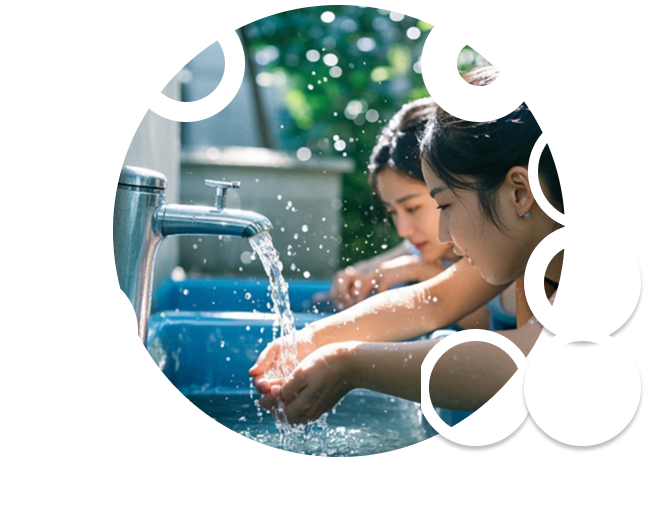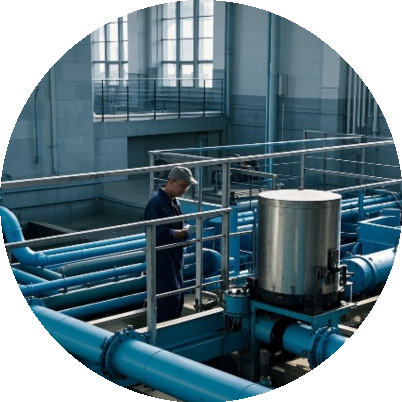Municipal Water Treatment
The membrane product series of AQFILM Membrane Materials Company includes nanofiltration and ultrafiltration solutions, suitable for municipal water supply systems of different scales.

The membrane product series of AQFILM Membrane Materials Company includes nanofiltration and ultrafiltration solutions, suitable for municipal water supply systems of different scales.

Municipal water supply, as the "lifeline" of urban operations, directly impacts the quality of life for residents, industrial production, and the sustainable development of social economy. In reality, with the acceleration of urbanization and population growth, the demand for municipal water is continuously increasing, and many cities—especially those in arid and semi-arid regions—face severe water shortages, with prominent contradictions between water supply and demand. Despite continuous improvements and upgrades to municipal water supply systems, water quality remains a critical challenge that cannot be ignored. Discharges of industrial wastewater, agricultural non-point source pollution, and domestic sewage have polluted water sources to varying degrees. With our nanofiltration (NF) and ultrafiltration (UF) technologies, we can achieve the following goals:

A waterworks in Tianjin is located in Wuqing District, Tianjin, with a water production scale of 30,000 tons per day. The water sources are the water from the East Route of the South-to-North Water Diversion Project and the Luanhe River. When surface water is used as drinking water, it faces biological safety issues such as "two worms" (Giardia and Cryptosporidium), algae pollution, and algal toxins. This project adopts a new high-efficiency short-process technology of ozone + ultrafiltration from Canadian Dugua, which requires the ultrafiltration membrane to have continuous oxidation resistance to ozone, while ensuring the effective removal of "two worms" in the water and the stable supply of produced water quality, so as to realize a short-process high-quality drinking water demonstration project with ultrafiltration as the core process.
The project employs the Canadian DAGUA process, which utilizes minimal or no chemical additives to deliver original-ecology, healthy, and safe drinking water treatment. This approach truly ensures a non-toxic and harmless treatment process, with the effluent meeting direct drinking water standards.The Canadian DAGUA process relies on micro-bubble ozone + oxidation-resistant ultrafiltration membranes as its core. This imposes strict performance requirements on the supporting ultrafiltration membranes: the water entering the membranes contains an ozone concentration of 0.3–0.5 mg/L. Conventional ultrafiltration membranes are prone to oxidation and degradation at this ozone concentration, with a service life of less than 2 years.
